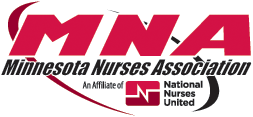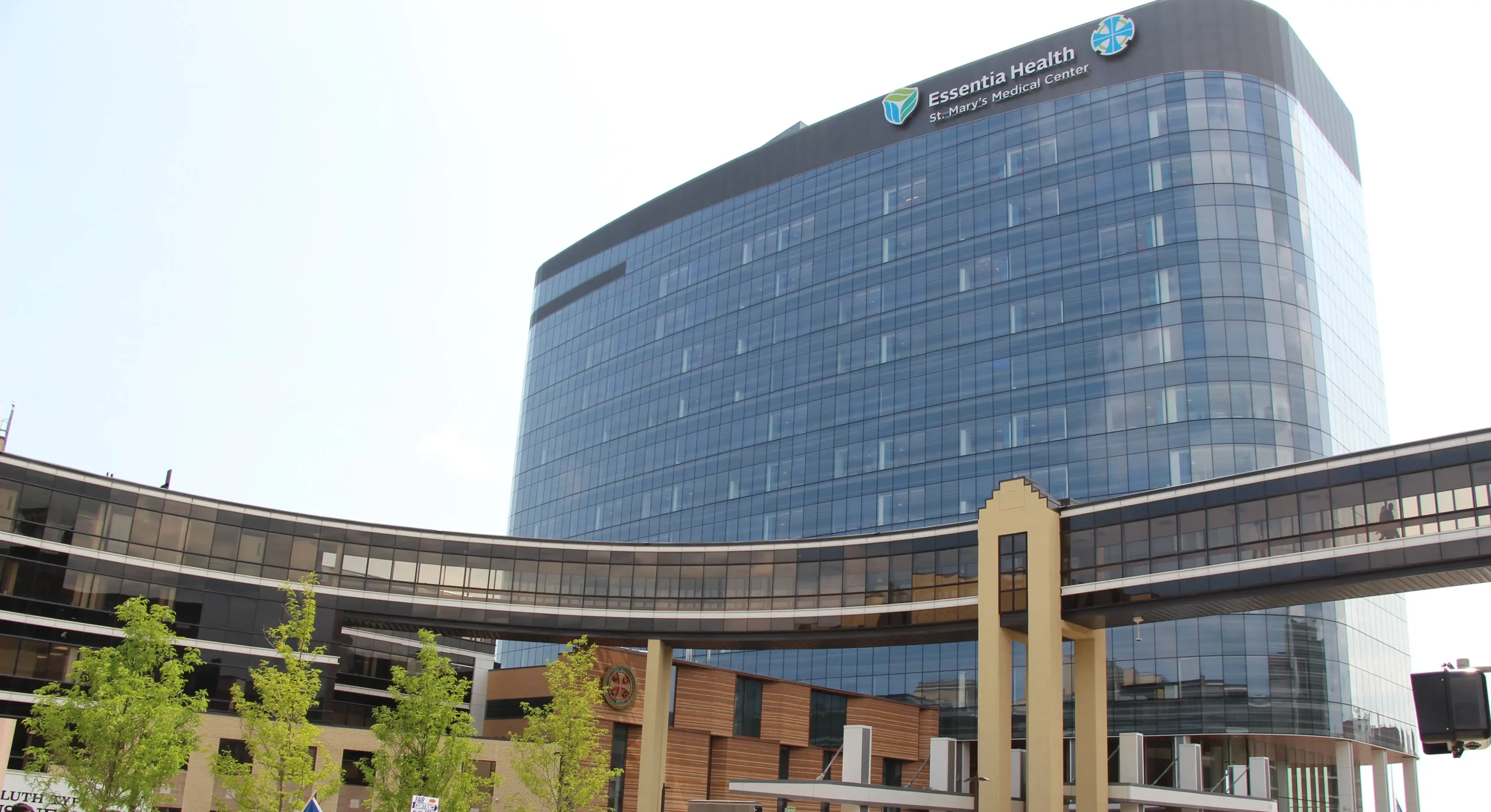By Jackie Russell, RN JD

MNA Nursing Practice and Regulatory Affairs Specialist
Nursing Practice and Regulatory Affairs Specialist
and
Carrie Mortrud, RN
Nurse Staffing Specialist
“You need to work more efficiently!”
“You need to work smarter!”
“You need to work overtime!”
It’s called blaming the victim and all are highly inappropriate and unacceptable employer responses following an assault. Victim blaming is a poor defense. In fact, there is no good defense for assault. No excuses either.
The employer must stop blaming the employee-victim for an assault. The employer must take responsibility for their employees’ safety. It is the employer’s duty to provide a safe work environment, which includes security as needed, in your facility to prevent or reduce assaults on employees.
Unbelievably, the comments above have been reported by nurse victims of assault, and it is not the nurse victim’s fault. Not once has a nurse reported an appropriate employer response following an assault. Even when one patient violently assaults another patient, the employer still blames the employee.
“We can’t use police security any longer, so YOU are the security [officer].”
Overtime

Nurse Staffing Specialist
In a recent meeting between the Minnesota Nurses Association (MNA), The American Federation of State, County, and Municipal Employees (AFSCME), the Minnesota Association of Professional Employees (MAPE) representatives, nurses at Anoka Medical Regional Treatment Center (AMRTC) and AMRTC Administration in response to the recent violent assault against an AMRTC nurse, administration claimed there is no staffing issue at AMRTC. Also, administration has no plans to put security in place. AMRTC employees have been working without a security presence since the end of last year, and the number of assaults has sharply escalated as a result.
Although AMRTC management denies it, there is a staffing crisis. AMRTC nurses and staff have consistently worked an extra 12 to 40 hours of overtime per pay period for months. Far too long for a denial of a staffing problem. So, either administration is in denial or they’ve redefined short staffing. The nurses and staff, however, do know what short staffing is, they live it, and they report it. As research shows, exceptionally long shifts (12 hours or more) and too many consecutive workdays lead to potential medical errors and poor patient outcomes–not to mention, the health and well-being of the nurses and staff.
“What did YOU do right before the assault occurred?”
Security at AMRTC
AMRTC worked closely with Anoka Peace Officers until an incident involving a patient at the end of last year led to a quick parting of ways. Administration did seek out a security contract to replace the Anoka Peace Officers but, according to AMRTC administration, the only security vendor to reach an agreement backed out in the eleventh hour. AMRTC has admittedly taken no further steps to find security and, has no plan to do so. AMRTC administrators do have a plan, which is train their own nurses to be security guards. Do you remember taking a security training course during nursing school? Was security training on the NCLEX? No! Would an employer who adds security to the job definition of a nurse care about their nurses’ safety, or their patients? Not likely.
“What did YOU say to the patient/client just before the assault?”
Retention and Recruitment
After the horrific assault on an AMRTC nurse, administrations response was shameful; they denied there’s a need for some security or that appropriate staffing may have prevented the incident. Instead, they argue AMRTC is not a dangerous place to work. This is what AMRTC expects of their employees, “put on a smile and don’t say negative things about AMRTC,” “it’s rewarding to work here, says administration,” and “need we remind you, there are people watching us closely now and we don’t want to leave a bad impression.” So, it’s okay to deceive the public?
AMRTC nurses and staff do say they find their work rewarding on some level. They enjoy working in mental health and with mental health patients because they believe they can make a significant difference toward a patient’s recovery or quality of life. But under the current circumstances, at what cost?
“Let’s look at the video/security camera to see what YOU could have done differently (to prevent an assault).”
Occupational Safety and Health Administration (OSHA)
OSHA 300 Logs document the number of workplace injuries in a healthcare facility, which include violent attacks and assaults, that result in three or more missed days of work. For calendar year 2018, just last year, 36 attacks or injuries from aggressive patients were reported at AMRTC. Already, in the first quarter of 2019, that number is already 25. Security was eliminated in December of 2018. Lack of security and increased number of assaults–coincidence or not?
Nurses trained to be security guards is not the answer. Nurses trained in de-escalation techniques would certainly be a good thing, but nurses are not the answer to provide the level of security a facility like AMRTC needs.
“YOU need to speak positively about your job and work environment, or no one will want to come work here.”
Joint Commission
The Joint Commission lays out requirements that healthcare facilities must meet for JCOH accreditation. The requirements encompass appropriate resources to provide safe patient care in the community it serves.
It is NOT a nurse’s responsibility to staff a nursing care unit any more than it is a social worker’s responsibility to fill in for a nurse when staffing is short.
It is NOT the nurses’ job to provide resources. It is not the nurse’s duty to provide or find solutions for the employer to keep themselves and their patients safe. It is, however, the nurse’s ethical and legal duty and professional responsibility to advocate for their patients when resources are less than adequate. There is a reason why there are federal and state regulations against these irresponsible employer practices.
Nurses have had enough! We are done being shamed, blamed and made out to because of an assault. It’s time to hold the employer accountable. We will not stop until we get the staffing, the security and the resources we need to do our jobs safely and effectively. Our patients deserve no less.



